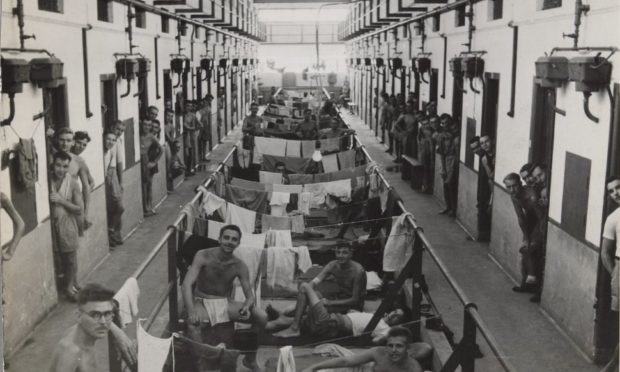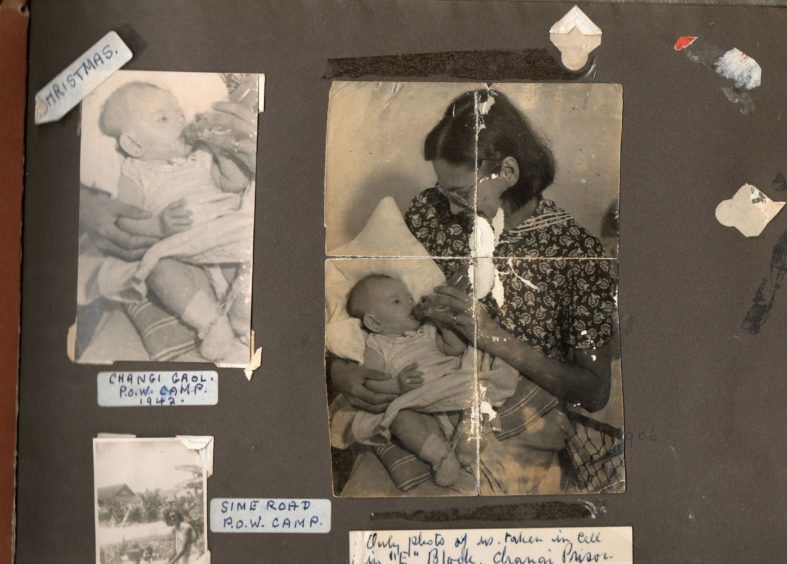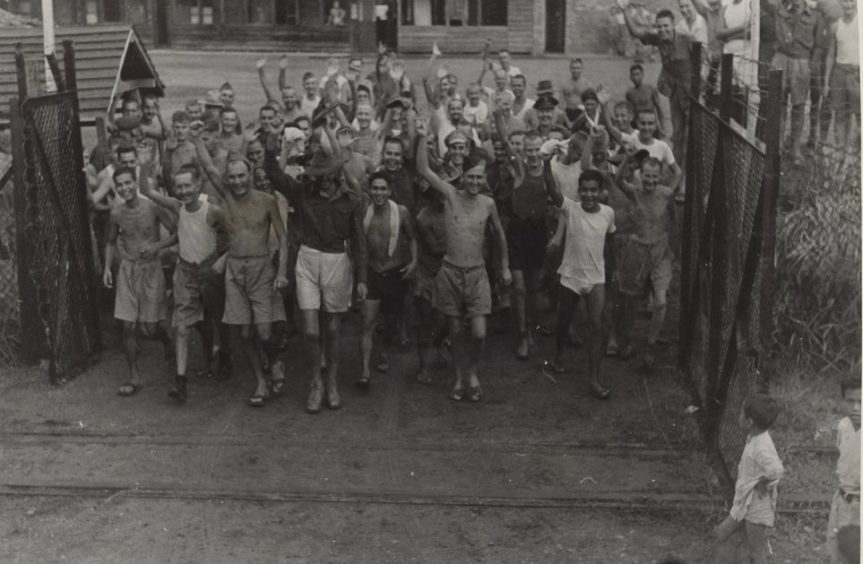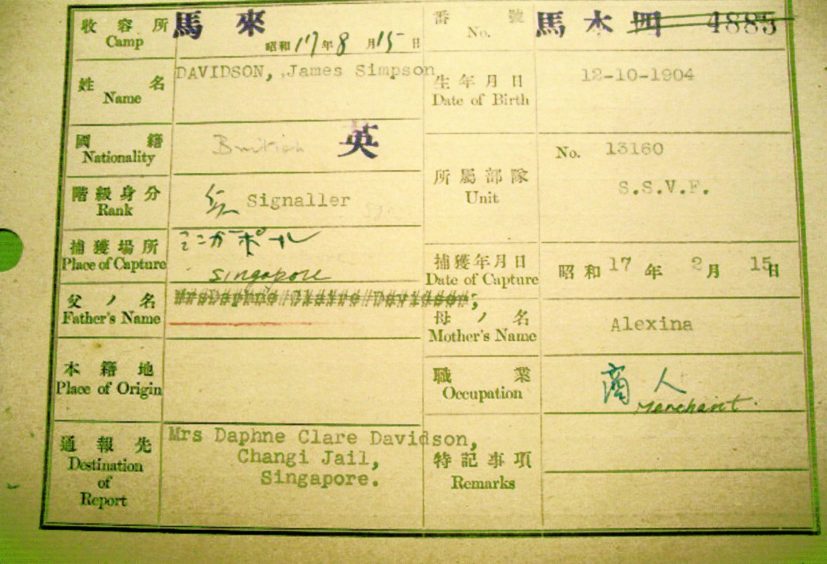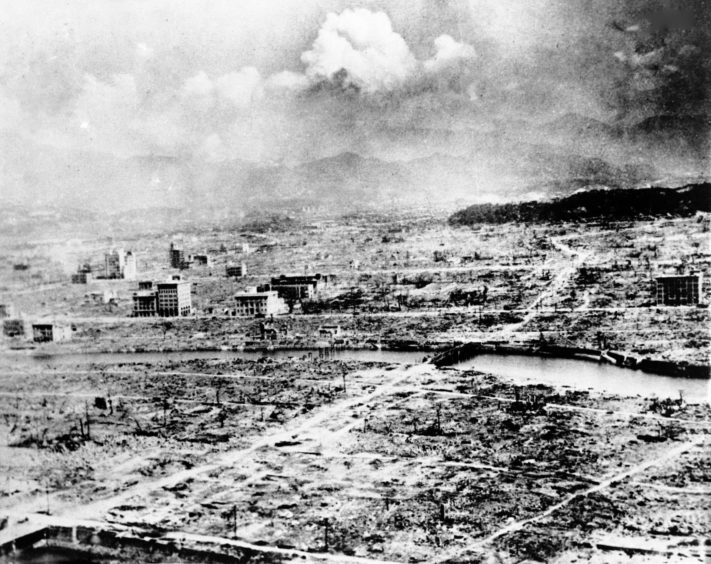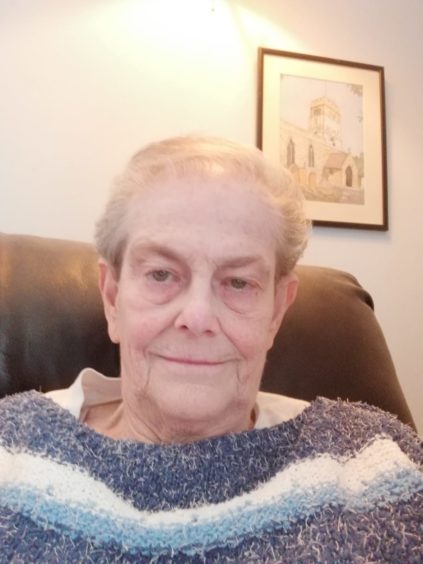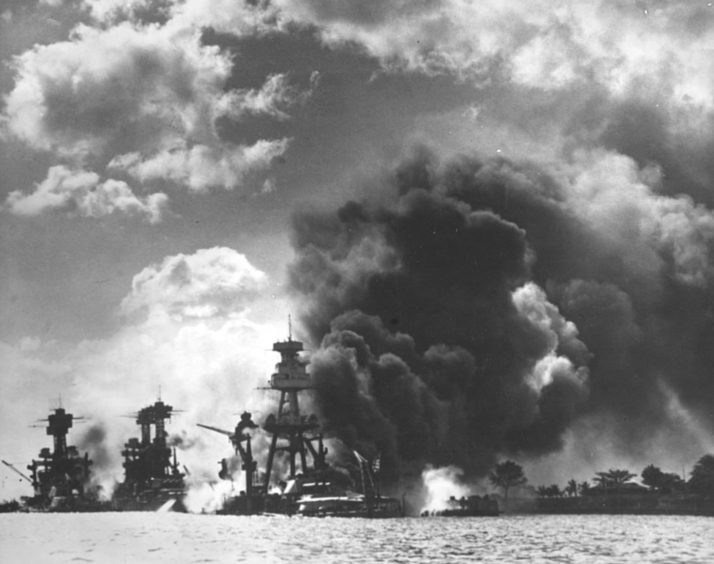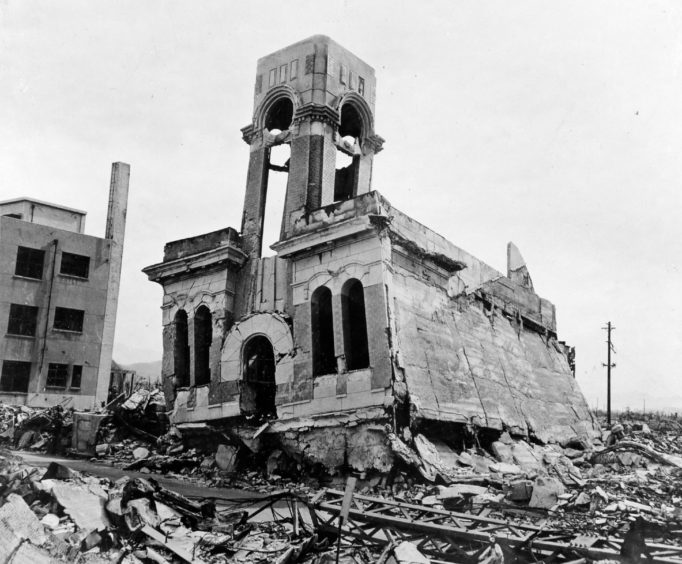It was one of the most harrowing events in British military history: the fall of Singapore during the Second World War.
In the space of a few weeks, thousands of Scottish soldiers were captured by the Japanese and incarcerated in a variety of prisoner of war camps across the Far East.
They endured terrible privations in the years ahead and the ashes of many of these young service personnel were subsequently scattered under the midnight sun.
The memories are indelible for those who were involved in the conflict and the surviving troops and their families will commemorate the 75th anniversary of VJ Day on August 15 with particular pride, because there are so few of them left.
Yet, despite the restrictions imposed by lockdown, which have forced organisations such as Poppyscotland and Legion Scotland to organise a virtual programme of commemorative events, it will remain a particularly poignant occasion for 78-year-old Jenny Martin, who was born in a POW camp in Singapore, and spent the first three years of her life there.
Jenny, who has looked back on that strange time, said: “My parents had met in Singapore.
“My father was born in Inverness and he moved over to work, while my mother had been born there.
“By the time she met my father, my mother was working as a secretary for the Colonial Secretariat – the Civil Service – in Singapore.
“The couple were married in 1934, and, seven years later, were very happy to be expecting a child.
“But we all know what happened next: the Japanese army invaded the peninsula and they took Singapore on February 15 1942.
“Mother was very busy at work right up to the last moment, burning files in an incinerator, at the back of the office.
“But like many other women, she found herself taken, with one suitcase.”
Her story is a reminder that it wasn’t just men who suddenly found themselves in captivity and often in brutal confinement, where the tenets of the Geneva Convention were often ignored.
The BBC drama series Tenko highlighted the way in which so many women’s lives were transformed for the worse as the hostilities raged on.
Jenny was born in the Changi Prison Camp, in eastern Singapore – as detailed in her birth certificate – and spent the next three years of her life under lock and key.
It was a spartan existence and there were few compensations for youngsters and their mothers who had to adapt quickly to their unwanted environment.
For month after month throughout 1943 and 1944, there was no guarantee that the Allies would prevail as their adversaries maintained a stranglehold in the region.
But eventually, as time passed, the tide turned against them and Jenny can still recall the moment she knew she and thousands more like her would be liberated.
She said: “Unknown to us, an (atomic) bomb fell on Hiroshima and then another on Nagasaki (in the space of a few days).
“One day, the guards all disappeared and then a plane flew overhead and dropped from its undercarriage thousands of leaflets, which fluttered to the ground like snow.
“Around me everyone was saying: ‘Thank God, thank God!’ The leaflet read: ‘The War is over. Japan has surrendered. We are coming for you very soon. Do not overeat!'”
These last words were especially poignant, given how many of the prisoners had been starved and were often close to being human skeletons by 1945.
The cessation of the hostilities was obviously a blessed relief to people who had faced unimaginable horrors.
Yet they were well aware that many of their comrades and close friends had perished during the conflict and that tempered any sense of triumph at the climax of the war.
Looking ahead to VJ Day, Jenny, who now lives in Edinburgh, added: “Personally, I think of a long and generally happy and privileged life with its ups and downs, achievements and failures, and the post-war lives of my parents and so many other people.
“I have always wondered if my life and those of other POWs weighed positively in the balance. I once met a Japanese doctor who apologised to me, and I apologised back to him for those terrible events.
“That healed something in me that had been difficult to live with before.”
Legion Scotland’s chief executive Dr Claire Armstrong said: “We are delighted to launch our events programme for the 75th anniversary of VJ Day alongside our partners at Poppyscotland and the Scottish Government.
“We have now commemorated two major anniversaries in a virtual space for the 75th anniversary of VE Day in May, and the 80th anniversary of St Valery in June.
“Now, the nation’s attention will turn to the events in the Far East 75 years ago. This campaign saw some of the fiercest fighting of the Second World War and in some of the harshest conditions.
“While Europe celebrated the defeat of Nazi Germany in May 1945, hundreds of thousands of personnel from across the Commonwealth were still engaged in the brutal fight against Imperial Japan.
“From prisoners of war such as Jenny to the soldiers of the Commonwealth, whose contribution is too often overlooked, we will highlight the incredible service and sacrifice which was made by those who fought in the Far East campaign and unite the nation in remembrance of the generation who gave so much.”
The campaign began on December 7 1941 when Japan attacked the American naval base at Pearl Harbor.
The British colony of Hong Kong was attacked the following day and, over the subsequent weeks, the outnumbered British troops retreated to Singapore, where they were forced to surrender with more than 9,000 men killed or wounded.
A further 130,000 were captured and became POWs, facing years of appalling conditions while being ordered to work on such projects as the ‘Death Railway’.
The casualty list was horrific. Thousands of Allied troops never returned home and those who did rarely spoke thereafter of the scenes they had witnessed and experienced.
The Allied fightback began in 1944 and was led by the British Fourteenth Army, the largest all-volunteer force in history with 2.5 million men and comprised mainly of units from India and East and West Africa, as well as Britain.
The mission to recapture Burma was one of the longest fought by the British during the conflict, but they finally entered the capital, Rangoon, on May 2 1945.
Just as they prepared to progress onwards to Malaya and Singapore, the atom bombs fell on Hiroshima and Nagasaki leading to the Japanese surrender on August 15.
It was a time for those who had been spared to embark on the journey home and for people such as Jenny Martin to think about such things as getting ready for school once they had returned to Scotland.
But they have never forgotten about those who were less fortunate.
